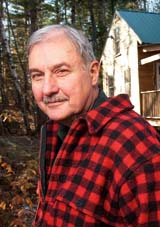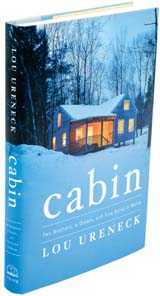 |
 |
| current issue |  |
past issues |  |
send a letter/news |  |
address update |  |
advertise |  |
about us |  |
alumni home |
Previews
|
|
|
Cabin Fever A city dweller finds solace in building a cabin in Maine Cabin: Two Brothers, a Dream, and Five Acres in Maine See also Web Extras by Janice Harayda '70
Lou Ureneck '72 knew he would face challenges when he decided to build a cabin in Maine near a spot called Rattlesnake Mountain. He didn't expect them to include a black bear that ripped apart a window screen, climbed in and ate his peppermint toothpaste. But neither that incident nor the return of the bear two nights later has caused Ureneck to regret building his retreat with his younger brother, Paul, a process he describes in his elegantly written memoir Cabin: Two Brothers, a Dream, and Five Acres in Maine (Viking, 2011). He frightened off the bear with a blast from a fire extinguisher and went back to more congenial pursuits, such as enjoying the songs of the wood thrushes and other birds on his hillside more than three hours by car from Boston University, where he teaches journalism. What kind of adventurer takes a standoff with a bear in stride? Clearly one who has seen worse. Before building his cabin, Ureneck had dealt with setbacks that included the loss of a job, the death of his mother and a divorce that left him nearly broke. Then he landed in a Boston hospital after an episode of atrial fibrillation following a period of anxiety. "I was a little wobbly but still standing, and I was looking for something that would put me back in life's good graces," he writes. Ureneck found his solace in building a 640-square-foot cabin in the western Maine hill town of Stoneham (population 255), where he sometimes has to don snowshoes to reach his door. His year-long project involved tasks that ranged from operating a backhoe to hauling lumber uphill on a makeshift sled made of two old water skis, and his memoir of the effort opens out to become more than a story of how a shared goal strengthened a bond between brothers.
Cabin deals with larger questions such as: What do we owe our neighbors, and the land that sustains us? And its thoughtful exploration of them has won praise from publications that include the Boston Globe, which said that it showed "an immensely observant eye for the richness of nature." No small feat for a man who scraped through freshman English at UNH. Ureneck had planned to major in forestry until he discovered Ralph Waldo Emerson, whose work suggested another way to express a love of nature. He studied writing with the Pulitzer Prize-winning journalism professor Donald Murray '48, '90H. "Don invented me, in a way," Ureneck says. Murray taught that hard work, more than talent, determines who succeeds as a writer, and Ureneck lives by that idea. Instead of coasting on the praise for Cabin, he has plunged into a new book. You might say he is, as he had hoped, "back in life's good graces." ~ |
Overviews:
1812: The Navy's War by George C. Daughan '61 An award-winning naval historian makes a strong case that America's "pipsqueak navy" came of age—dramatically—in the War of 1812 and helped turn the young United States into an incipient world power. 
Beyond Mechanical Markets: Asset Price Swings, Risk, and the Role of the State by Michael D. Goldberg, UNH professor of economics, and Roman Frydman Did unsound economic ideas and policies contribute to the current financial crisis? Two experts argue that that they did, in a timely book that Martin Wolf of the Financial Times, chose as his favorite economics book of 2011.
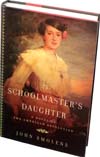
The Schoolmaster's Daughter by John Smolens '82G A bold young woman gets swept up in Revolutionary War espionage in a novel inspired by the story of a Boston headmaster's family. Memorable details include that Paul Revere had a sideline in making dentures from the teetch of bobcats.
|




Web Extras Additional books by UNH alumni and faculty and staff members Including, in this issue: Joel Brown '81 Beth Dooley '77 Ronald Dube '64 Joann Duncanson '52 Mary Ann Esposito '91G Christopher Fauske '84, '86G Karen Tongue Hammond '64 Pamela Colburn Harland '90 Suzanne Buzby Hersey '03 Richard Krawiec '83G Hope Ives Mauran '80 Tod Papageorge '62 Randall Peffer '73G Joseph F. Zimmerman '50 | |
|
Joel Brown '81 Mermaid Blues Last fall North Shore readers were all talking about Mirror Ball Man, local writer Joel Brown’s fast and funny mystery set in “Libertyport” and on “Plover Island.” Now he’s bringing washed-up singer-songwriter Baxter McLean back to face another crime-solving adventure in Mermaid Blues. The excitement this time around includes a mermaid, a shipwreck...and murder. Libertyport’s annual Yankee Old Home Days festival has hit rough seas. The new preacher in town is firing up his flock to protest a saucy sculpture. A booze cruise goes overboard. And a fisherman’s son dies violently in his apartment above the Thirsty Lobster bar. Baxter will have to take a break from recording his comeback album to catch a killer. NewburyportToday.com called Joel Brown “one hell of a writer.” His Libertyport mysteries take a satirical but affectionate look at life in a town where townies and artists and yuppies coexist, not always peacefully, and the tourists just keep coming. From goodreads.com See at amazon.com |
 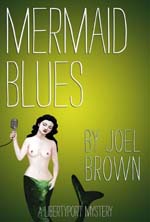 |
|
Beth Dooley '77 The Northern Heartland Kitchen The Northern Heartland Kitchen is a cook's guide to the year's rhythms, organized by winter, spring, summer, fall. As a geographic term, the Northern Heartland region defies state boundaries and encompasses Minnesota, Iowa, Wisconsin, the Upper Peninsula of Michigan, and eastern South Dakota and North Dakota. But this book addresses the challenges of all cooks who live in the nation's northern climates. Though our growing season is short, our crops have always been bountiful. These days, local growers and producers are using new technologies and rediscovering heritage practices to enrich our regional larders. When mindful of local choices, we buy greens instead of asparagus in September or toss sweet storage carrots rather than Mexican tomatoes into a February salad. Why buy French butter when the local dairy's tastes of summer's bright pasture. Our artisan cheeses trump the French in international competitions year after year, and our craft brews rival any from Europe. Our local beef, pork, poultry, game, fish, honey, maple syrup, harvest vegetables and grains are among the best. Our local offerings are not limited to niche cottage industries; they needn't be precious or overpriced. Eating local doesn't mean giving up coffee, chocolate or bananas, or spices, but it does imply being aware of where food comes from and how it's produced. We cooks have an opportunity to shape a regional food system based on flavor, health, and sustainability. Shipping, handling, and storage are not high priorities in this paradigm. We've revived the bottom line, valuing taste, nutrition, the environment, and our local economy above quality and price. A secure local food system delivers fresh, delicious nutritious, chemical-free clean food while protecting our natural resources, provides a fair income for producers and guarantees access to everyone. With simple, recipes, the latest research, and stories of resilient and creative growers, chef's and cooks, The Northern Heartland Kitchen is a cookbook and guide to eating and living well. See at amazon.com |
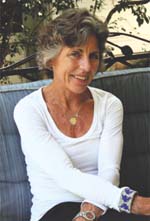 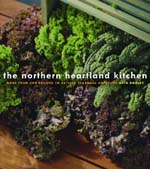 |
|
Ronald Dube '64 Nashua Area Men & Women in World War II The idea for this book began in April 1984. I was teaching science at Varnum Brook Middle School in Pepperell, Mass. and working part time for the Telegraph and two weeklies. NBC anchorman Tom Brokaw was touting President Reagan's upcoming visit to the Normandy beaches to commemorate the D-day landings 40 years earlier. I asked Jon Breen, the Telegraph editor, if the paper was planning anything special for the June 6 issue. He said , no, and asked if I had anything in mind. I suggested we try to locate someone involved in that momentous time. He gave me the go ahead. I had Norman Bleau, the head custodian at Nashua High School, where I taught biology before going to Pepperell. I remembered him telling me that he piloted landing craft transporting soldiers from the mother ships to the beaches. He made about twelve transfers that day. The Telegraph also ran a story about Nashua attorney Robert Winer, who co-piloted a glider behind enemy lines the night before the landings. Breen received a number of compliments about the stories. I had my foot in the door. I mentioned that WW II did not end with D-day. Victory was still more than a year away. He smiled. probably knowing what I was up to. He approved my searches for other veterans involved in other aspects of WW II. The paper published 40 stories over the next three years, averaging about one a month. I retired from Pepperell in 2004 and returned to Nashua High (South) for another three years, finally hanging it up in 2007. I decided to write a book about WW II from the experiences of Nashua area people. I re-interviewed those that were still around, and a bunch of new ones. I looked at every back issue of the Nashua Telegraph on micro-fiche at the Nashua Public Library for names and stories.Nashu area people were involved in every aspect of the war, except for Wake Island, the Doolittle Raid, and the Nuremburg Trials ( as far as I could discern). The book is 800+ pages long. I chose the Nashua High purple color for the cover. My son, Luke, a graphic artist, designed the cover. See at amazon.com |
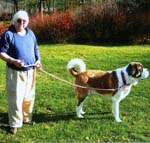 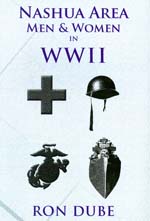 |
|
Joann Duncanson '52 Eight Crayons—Poems and Stories by an almost sane woman Although UNH offered just one writing course when I was an English major there, that didn't seem to dampen my spirits for becoming a writer. Today, I have three books, over twenty-five years of newspaper columns, and countless poems behind me and I'm happy to say that UNH now offers not just one, but several courses for would-be writers of tomorrow. I like to write about real people and situations—many of them right here in New Hampshire—so on any given day you are apt to find me in a mall or coffee shop observing the scene and capturing some of the unsuspecting passersby in a poem or column. Who knows? I could have written about you, for all we know. My new book, Eight Crayons—poems and stories by an almost sane woman, published by Xlibris, highlights my poetry, and though I am known as a humorist, it spans the full gamut of moods. The poignant "Invisible" tells of that first day when we women realize that young men don't notice us anymore, and saucy "Ode to a Popover" is just plain fun. Then there are the serious poems like "Two Mothers" where I pull back the curtain of my mother's dementia and how our roles changed because of it. (This poem is now used by Alzheimer organizations, hospices and social workers in various parts of the world.) The book's title comes from one of my poems of the same name: ,which likens beginning a new year with opening a brand new box of crayons. If this is true, I write, then "I wish for five yellows for coloring the sun, two reds for coloring the heart, and just one blue, for the sad days when I don't feel like coloring at all." See at amazon.com |
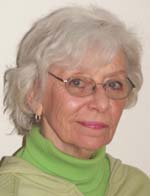 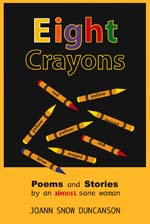 |
|
Mary Ann Esposito '91G Ciao Italia Family Classics A primer for authentic Italian cooking from the host of the long-running PBS show Ciao Italia. Esposito (Caio Italia Five-Ingredient Favorites, 2009, etc.) returns with Italian recipes both familiar and unfamiliar; her section on sauces not only includes recipes for pesto and tomato sauce, but also Salmoriglio, a Sicilian sauce made with lemon and olive oil. The author provides a helpful resource for cooks wishing to deepen their knowledge of the principles behind Italian cooking, while simultaneously broadening their repertoire of Italian dishes. Esposito begins with an introduction to “Italian Pantry Basics,” a helpful encyclopedia of the ingredients that appear most often. Organized according to different main ingredients and rife with anecdotes, history and additional information about techniques, the book emphasizes local, seasonal and organic produce and meat. Even so, most ingredients can be easily found in any chain grocery store. Recipes range in difficulty but are clear and easy to follow. Readers who wish to use store-bought pasta are accommodated, as are those who want to try their hand at homemade Spinach Pasta. Most recipes are well within the range of a moderately experienced cook. Uncooked Cherry Tomato Sauce could easily be put together by a child, and Creamy Cauliflower Baked in a Mold, though requiring more skill, would undoubtedly make an impression at a dinner party. Complete, authoritative and accessible guide to Italian ingredients, cooking and cuisine. From Kirkus Reviews See at amazon.com |
  |
|
Christopher Fauske '84, '86G A Political Biography of William King When I arrived at UNH in September 1982, I had every intention of returning to Britain as soon as I had completed my degree. Everything was going according to plan until I handed in my final paper to Mike DePorte, who was also director of the English department's graduate studies. He said he looked forward to seeing me the next semester. I reminded him I was graduating. "I know," he said, "but you'll be in grad school." That I hadn't applied was not, he said, that big a problem, so long as I got the paperwork to him before I flew home. I didn't have a job back home, and no one in my family had been to college so I didn't have any basis for declining. [My grandmother graduated from teachers' training school in Norway in the late 1920s, but that didn't then count as "college," even though graduates were required to have passed exams in written and spoken Norwegian, Latin, German, and either French or English!] So, I returned to UNH. The flaw with that plan, it soon become clear, was that I was supposed to study something. Probably because of Mike's influence, I ended up thinking about Jonathan Swift. Few Swift scholars have ever understood the dean as well as Mike—his study Nightmare and Hobbyhorses remains seminal—but he did admit to one uncertainty: the nature of the God in which Swift believed. With Mike's regular assistance, I explored an answer to that question that became my first book. All that managed to do, however, was introduce me to a far more interesting historical and religious figure: Swift's sometime boss, the archbishop of Dublin, William King, of whom Swift scholars, by and large, are dismissive. Wrongly. Very wrongly. King, a deeply devout servant of his God and his church, serves even now as a stark reminder of just how very very bad an idea it is for a church to seek the favour of the state. Oddly, it's a lesson reinforced by any halfway attentive reading of Dean Swift, that great satirist of politics. See at amazon.com |
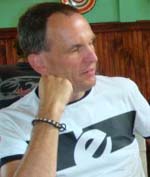  |
|
Karen Tongue Hammond '64 Backroads & Byways of New England: Drives, Day Trips & Weekend Excursions I am a long-time freelance writer in the areas of health, parenting, and aging, and an inveterate traveler who rarely uses travel guides because I prefer to explore out-of-the-way places. When I added food and travel writing to my repertoire a few years ago, the positive feedback from readers who enjoyed hearing about my off-the-beaten track adventures surprised me. Backroads & Byways of New England: Drives, Day Trips & Weekend Excursions grew out of that realization. Fortunately, Countryman Press in Vermont agreed that the book would fit nicely into their list for adventurous travelers. While it contains suggestions for places to see, eat, and stay, the text focuses more on the history, people, and ambiance of the six New England states. It was important to me to capture some of the unique traditions and the personality of each state, as well as New England as a whole. Along with my BA from UNH, I have a master's degree in social science from SUNY-Binghamton and over the years have developed a special interest in the role of food in different cultures. I think that interest comes through in Backroads & Byways of New England: Drives, Day Trips & Weekend Excursions, whether it's a look at Maine's lobster fishing industry, a review of iconic clam shacks in Massachusetts, a discussion of Rhode Islanders' love for coffee ice cream, or a humorous peek at a monument to the chickens who lay New England's favorite brown eggs. Architecture, too, plays an important part in the history of each state, from what has been called the country's most beautiful street in Salem, Massachusetts, to the French-Canadian influence in parts of northern Maine, or the connected farms of New Hampshire and Vermont. I've tried to give a sense of the many architectural styles, enhanced by the photographs taken by my photographer husband, Nathaniel Hammond. Positive feedback from readers has been very rewarding. One reviewer wrote that reading the book "felt like an enlightening conversation rather than a tome of travel facts." See at amazon.com |
 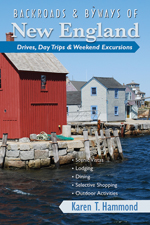 |
|
Pamela Colburn Harland '90
The Learning Commons: Seven Simple Steps to Transform Your Library When I arrived on the UNH campus in the fall of 1986, one of the first things I did was apply for a work study position at the Dimond Library. I was trained as a shelver and kindled a love of libraries over the next four years. I spent countless hours shelving in the stacks and discovering treasures within. Every Saturday I manned the BioSci Library and helped students locate resources. I learned copy cataloging from a friendly librarian in Technical Service. By my senior year I was planning a career in Library Science. I earned my Masters in Information Science in 1994 at Drexel University in Philadelphia. Since then I've worked in over a dozen libraries from the Federal Reserve Bank of Boston's Research Library to high school libraries. I found that I was good at creating simple work flows and welcoming spaces where library users could use a variety of information sources and experiment with new technologies. I found that librarians around the world were changing their dusty old library spaces in revamped learning commons—so I hopped on the bandwagon and have been supporting the cause every since. I wrote my book The Learning Commons as a simple guide for librarians and administrators who are interested in modernizing their seldom-used library and turning it into the information and resource center of the campus. When we picture a legacy library we picture dusty books with prohibitive rules and antiquated policies for dealing with out-dated equipment. The learning commons is a user-centered model which combines several departments (library reference, technology help-desk, technology integration, library circulation, and anything else a user needs) in order to establish a centralized point of access for all of the complex needs of today's library user. My book is a step-by-step guide on creating a learning commons inexpensively through a shift in service: especially away from protecting and preserving resources and moving towards trusting library users and providing access to any tools and texts that they need. The book is based on my experiences in instituting a learning commons and it's my goal to share this information with librarians everywhere. See at amazon.com |
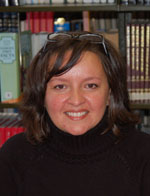  |
|
Suzanne Buzby Hersey '03 My Maine When I was in the fourth grade, I wrote in my journal that I wanted to grow up to be a children's book writer and live in the state of Maine. I spent my summers with my family on the coast of Maine, and with each summer grew a stronger love for "Vacationland". When I was at UNH, I lost sight of my childhood dream of becoming an author and spent my time dabbling into several different subject areas, finally deciding to major in Sociology. I was always a bit envious of friends who seemed to have it all figured out. It wasn't until several years after graduation when I moved to Maine, that everything seemed to fall into place. My idea for my story was as clear as day. My Maine is a young girl's ode to her state. It is her account of everything that makes Maine such a special place to live and visit. I felt so happy to be living in such a beautiful place, and I was hoping to create a book that captured my enthusiasm and instilled it in young children both from Maine and visitors alike. I am also hoping that teachers will be able to use my story as a tool to encourage young students to write and share unique stories about their own state. My Maine is a beautifully illustrated picture book that takes the reader on a brief tour of the state, following the main character and her stuffed moose. Check it out at www.littlebeachbooks.com or on Amazon. |
 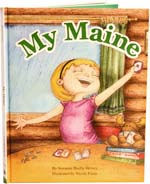 |
|
Richard Krawiec '83G She Hands me the Razor When I was at Macdowell Colony after publishing my first novel Time Sharing (Viking Penguin), New York novelist Maureen Howard predicted "You're going to write poetry some day." At the time, I scoffed. But after publishing another novel, a story collection, and winning grants from the NEA and the North Carolina Arts Council for my fiction, I did turn to poetry. She Hands Me the Razor, my second book of poems, was just published by Press 53. (Aside - it's not a slasher book, the title poem is about shaving a woman's legs). I brought my training as a novelist to bear in constructing a collection that, while not exactly following a plot, moves forward like a novel. Told in 3 sections, Love, Loss, and Redemption, She Hands Me the Razor begins with youthful, passionate love, moves through betrayal and separation, takes its characters into a world whose stark suffering challenges them to discover ways to find hope. The third part brings mature love and commitment, death, and a search for transcendence. Like a novel, She Hands Me the Razor extends over time and covers a wide variety of events. A child dies, a spouse descends into mental illness, a lover passes on. As one critic said, the book is "...a brilliant journey into love, inevitable loss and redemption." (Well, I had to get the word brilliant in, didn't I?) As someone who has published more fiction than poetry, the response by other writers has been heartening. Fred Chappell, who actually blurbed my first novel said, "I never doubted, always thinking, 'Yes, this is how it must have been'." Former NC Poet Laureate Kathryn Stripling Byer, who many think has a shot to become the first Poet Laureate from the South, praised it saying "These poems ferry us through dangerous waters, leaving us finally upon the shores of grace...'the red infusion of morning light/on my lover's already glowing face.' I came to UNH to study fiction. The lessons I learned in classes taught by Tom Williams, John Yount, and Mark Smith have also prepared me to move confidently into poetry. See at amazon.com |
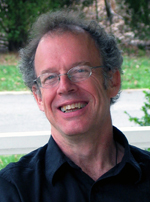 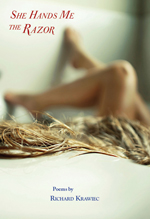 |
|
Hope Ives Mauran '80 Be The Second Coming Greetings UNH community! Having graduated in 1980 with a degree in Forestry I never imagined becoming a spiritual teacher and author. No doubt Forestry's centeredness on nature provided a solid foundation for the expression of the divine in nature that now fills how I see the forest—through new eyes! I invite you to join me in an a wildly expanded view of who you truly are by reading Be The Second Coming, Guidebook To The Embodiment Of The Christ Within: A Personal Journey, Our Collective Destiny. From the back of the book: Be The Second Coming is a timely and timeless "how-to" for connecting to the divine presence that is within each of us. Practical exercises will help us to see "All as One", which is the bridge to seeing as a Christ sees. (A Christ is simply, one who embodies God.) Learn to see the structures, people, animals, and the very earth around us as part of who we are in the largest sense. In seeing this way fears and limitations can drop away, enabling us to relax in a new way, giving us the power to transform our lives and the world we all share. The author's story begins as she is told she had agreed to embody Christ consciousness. As her spiritual journey unfolds, she shares conversations she has with Jesus Christ, offering a road map for awakening the Christ within us, thus making the path to Christ consciousness a possibility for each of us. Poignant, and at times humorous Be the Second Coming captivates and enlightens while it offers insight into what is happening on earth now that supports our embodiment of the Christ. Learn:
|
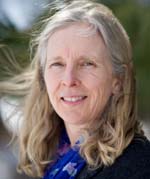  |
|
Tod Papageorge '62 Core Curriculm: Writings on Photography Core Curriculum: Writings on Photography is the long-awaited collection of essays, reviews and lectures by Tod Papageorge, one of the most influential voices in photography today. As a photographer and the Walker Evans Professor of Photography at the Yale University School of Art, Papageorge has shaped the work and thought of generations of artist-photographers, and, through his critical writings—some of which have gained a cult following through online postings—he has earned a reputation as an unusually eloquent and illuminating guide to the work of many of the most important figures in twentieth century photography. Among the artists Papageorge discusses in this essential volume are Eugène Atget, Brassaï, Robert Frank (with Walker Evans), Robert Adams and his close friend Garry Winogrand. The book also includes texts that examine the more general questions of photography’s relationship to poetry, and how the evolution of the medium’s early technologies led to the twentieth century creation of the artist-photographer. Among the previously unpublished pieces in Core Curriculum are an unfinished poem written in response to Susan Sontag’s On Photography, a profile of Josef Koudelka and a commencement speech delivered at the Yale School of Art in 2004. Core Curriculum also includes a number of interviews with this esteemed photographer/teacher/ author, ranging in topic from his own photographic work and background in poetry to his energetic observations on the art of photography. From Aperture See at amazon.com |
 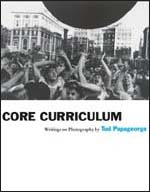 |
|
Randall Peffer '73G Screams & Whispers Called "pure opera" by the Library Journal's novel reviewer, Screams & Whispers is something of a contemporary recasting of Puccini's Madame Butterfly as well as Miss Saigon. With all the romance and heartbreak...and a lot more suspense. This is the sixth novel in Peffer's Cape Islands Mystery series and the third book in the Tuki Trilogy, which concludes the drama begun in the Lammy Award finalist Provincetown Follies, Bangkok Blues That Was Continued In Bangkok Dragons, Cape Cod Blues. In this story, young Cape Cod public defender and commercial fisherman Michael Decastro ventures to contemporary Saigon to come to the aid of his long-lost client and love interest Tuki Aparecio. With his Vietnam War vet father Caesar as wingman, Michael must try to rescue this beloved, the half-Vietnamese, half-African-American Tuki, from the fight of her life. She's locked in a duel with a mysterious dragon lady named Wen-Ling, a major player in the opium/heroin trade of Southeast Asia. At stake is an antique ruby in Tuki's possession and the mortal souls of everyone Michael loves. The ghosts that he, his father and Tuki carry with them from Cape Cod to Southeast Asia have their day. |
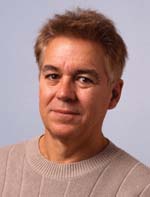 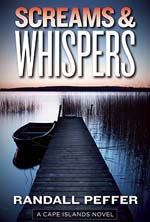 |
|
Joseph F. Zimmerman '50 Horizontal Federalism: Interstate Relations Cooperative interstate relations are essential for the maintenance of the economic union and the political union established by a federation. This fact suggests interstate relations would be featured prominently in the literature of the United States federal system, yet relatively few scholars have studies horizontal state relations. This volume provides detailed information and an analysis of interstate relations—compacts, economic competition full faith and credit, privileges and immunities, rendition of fugitives, taxation—and advances recommendations to improve the economic union and the political union. The ultimate goal of the book is to stimulate scholarly research on important yet neglected interstate issues. See at amazon.com |
  |
blog comments powered by Disqus

